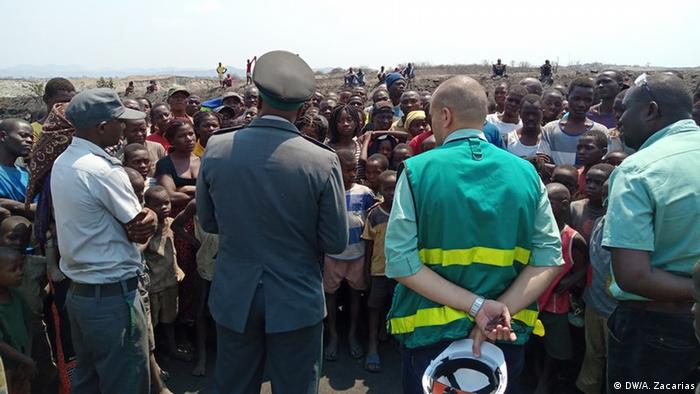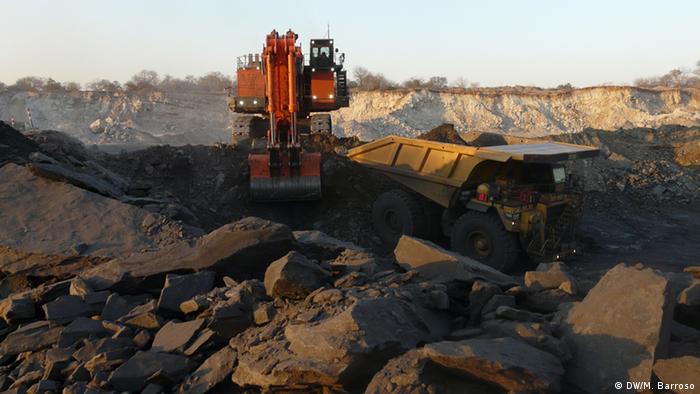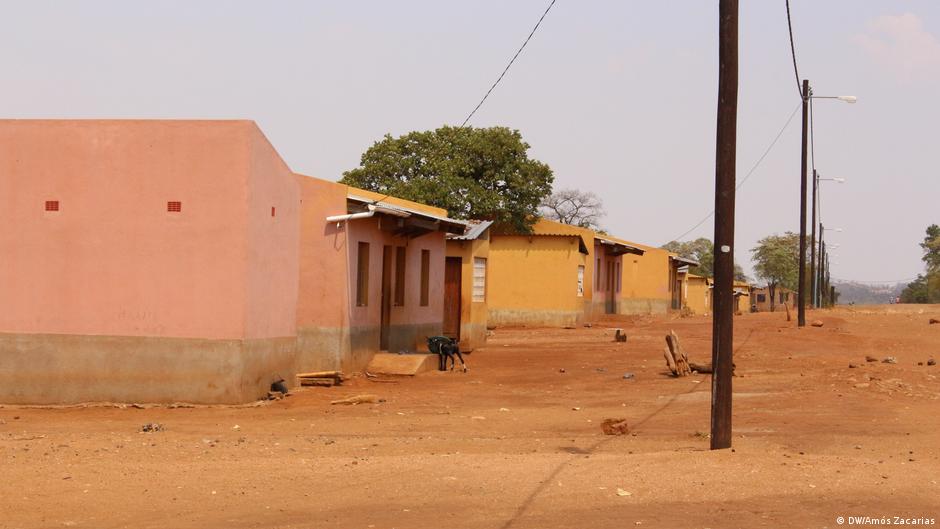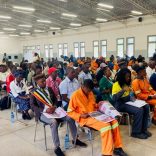Mozambique: Mozal awards 150 scholarships for university, technical and vocational education
Mozambique: “No legal basis” for activists’ arrest in Moatize – Environmental Justice

FILE PHOTO - Conflicts have marked Vale's operations in Moatize. This photo is from 2018. [File photo: DW]
- An anonymous tip off led to the arrest of four activists during a community meeting in Tete. The group, which defends the rights of families who own houses cracked by Vale mining explosions, was released after three days.
Four activists were released this Tuesday (23-11) in the Mozambican province of Tete after being unfairly accused of extorting and defrauding communities disadvantaged by the activities of mining company Vale.
The arrests took place on Saturday (20.11), in Nhantchere and Bagamoio neighbourhoods in Moatize, adjacent to the company’s coal mines.
Read: Mozambique: Políce detain activists near coal mines
DW Africa spoke with Ericka Mendes, a member of NGO Environmental Justice (Justiça Ambiental), who suspects that there was bad faith behind the allegations and criticises the actions of the police. Mendes says it has become common for people who have been “vocal in defending the rights of communities” to suffer reprisals and intimidation.
DW Africa: How did the detention take place?
Ericka Mendes (EM): The four activists were at a meeting with the community, where they were looking at how they could move forward with the process of families who have cracks in the walls of their homes due to the Vale explosions. To move forward with the meetings with the Secretary of State, the community voluntarily decided to contribute to the expenses of the four members of the commission, who cannot afford transportation [and other expenses]. While the community was contributing, police officers appeared and took the four citizens away on charges of fraud.
DW Africa: Vale says that it promotes meetings with community groups, but is not aware of meetings held outside official forums, nor is it aware of requests for community contributions to put pressure on the company. Is there coordination in these activities between activists and Vale?
EM: I don’t know to what extent they are coordinated with Vale. But, taking into account the various impacts that exist because of the company, communities have organised themselves in different ways. Usually, one of the ways to organize themselves is to elect some of their members to move forward with certain processes, as in this case. In the case of potters, I know that there are meetings between Vale, the potters and the government. In this case of the cracked walls’ commission, I cannot say whether there is a meeting directly with Vale. I know they are dealing with this procedure with the government to request the opening of the process so that Vale can compensate the families.

DW Africa: Does Environmental Justice suspect that there was bad intention on the part of those who denounced these activists?
EM: What we’ve seen is that activists and community members who have been more vocal in defending their rights have suffered various types of reprisals and intimidation. On the other hand, community members often say that various government agents and institutions are bought by Vale, so they act in Vale’s interests – including the police, who often violently stop community protests – even peaceful ones. We believe this is part of the same strategy of trying to weaken this type of struggle, which has often resulted in cases where Vale has paid compensation to communities.
DW Africa: Can you tell us how the process of getting these activists released was conducted?
EM: We saw a process that, without any legal basis or evidence, with just what was said to be an anonymous tip off, resulted in three days’ detention of citizens who were defending the interests of the community.
The process was dragged out through bureaucratic means. They kept postponing, at each stage taking much longer than necessary, to the point where these individuals were imprisoned for three days.
There was a court hearing [on Tuesday, 23-11], where a public prosecutor and a defence lawyer from the Mozambican Bar Association were present. At this hearing, it was proved that there was no basis or evidence for this accusation. People from the communities who were brought in as witnesses confirmed that they made these contributions of their own free will. The four citizens were released late this Tuesday afternoon.

DW Africa: Vale has already announced its intention to abandon coal exploration in Tete province. However, there are pending lawsuits between the communities and the company. How do you think these pending cases will be managed?
M: Naturally, Vale cannot be authorised to sell the mine without resolving all outstanding lawsuits. We are talking about lawsuits in which families need to be compensated for damage to health due to pollution, cases of houses cracking, poorly conducted resettlement processes and communities who should have been resettled but have not yet been.
There are hundreds of pending lawsuits that have not yet been resolved and cannot fall into the breaches of a sales process – as has already happened with Vale in other countries. In Brazil, Vale sold its project in Sepetiba Bay and the purchasing company did not take on any of the pending matters. Therefore, our fear is that Vale is also trying to do this here and that – from the moment it announces the buyer – it will wash its hands of any pending issues it has with the communities. That’s what we have to prevent from happening.












Leave a Reply
Be the First to Comment!
You must be logged in to post a comment.
You must be logged in to post a comment.